
The symphony of a car’s engine and exhaust can be music to the ears of many automobile enthusiasts. However, not all sounds emanating from your car’s exhaust are harmonious.
Some might indicate potential problems that need immediate attention. In this article, we will delve into the intricacies of exhaust noise, helping you differentiate between normal sounds and those that might signal trouble.
Understanding Why Car Exhaust Making Noise
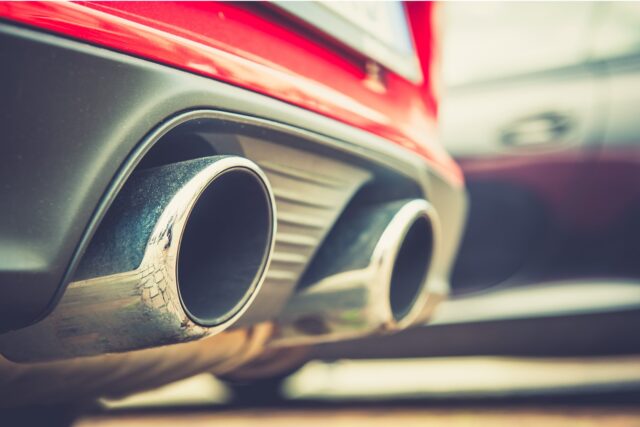
Before we delve into the specifics, it’s essential to understand why a car exhaust makes noise. The exhaust system is designed to channel and expel the burnt gases and vapors from the engine.
As these gases travel through the exhaust pipes, they create pressure waves. These waves, when they exit the exhaust, are what we perceive as sound. The design of the exhaust system, including its length, diameter, and the presence of components like mufflers, can influence the sound’s character.
Further, the sound you hear from the exhaust is a result of both the engine’s combustion process and the exhaust system’s acoustics. The number of cylinders an engine has, its firing order, and even its rpm range can affect the sound’s frequency and pitch.
For instance, a V8 engine has a distinct rumble, while a four-cylinder engine might sound more high-pitched and buzzy. Over time, wear and tear can also impact the noise your exhaust emits. Corrosion, loose parts, or cracks in the exhaust system can lead to unwanted sounds like rattling or hissing.
Similarly, a damaged or worn-out muffler won’t be as efficient in dampening the noise, leading to a louder exhaust note. It’s crucial to pay attention to any abrupt changes in your car’s exhaust sound, as this can indicate underlying issues that need addressing.
A well-maintained exhaust system not only ensures a pleasant sound but also optimizes engine performance and efficiency.
Normal Car Exhaust Noises
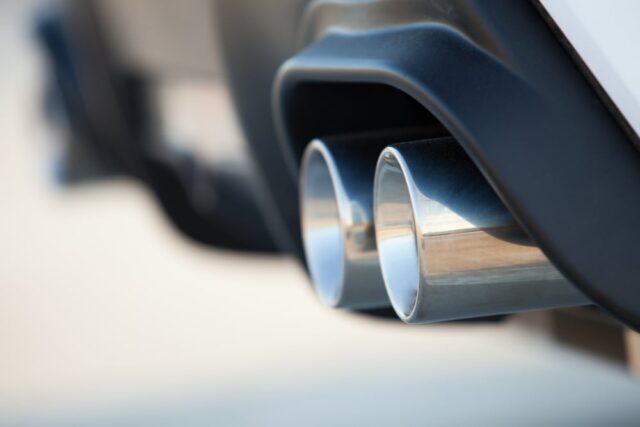
Purring or Humming
Every car has its unique acoustic signature, much like a fingerprint, and a well-tuned car’s most recognizable sound is often its consistent purring or humming. This gentle and rhythmic noise signifies that the engine is working efficiently, with all its components synchronized harmoniously.
The purring or humming is primarily the result of the engine’s combustion process, where the precisely timed burning of fuel produces sound waves that travel through the exhaust system. Moreover, the flow of exhaust gases, when unimpeded and steady, contributes to this audible harmony.
As you press the accelerator, increasing the engine’s RPM, or as you let off the gas, decreasing it, this sound should modulate in a predictable manner, growing louder or softer respectively. Any abrupt or unexpected change in this sound could be indicative of an issue with the engine or exhaust system.
Therefore, familiarizing oneself with the car’s standard purring can be beneficial, as it can act as an early warning system for potential problems. Always remember, a contented purr is the sign of a happy and healthy vehicle.
Deep Roaring
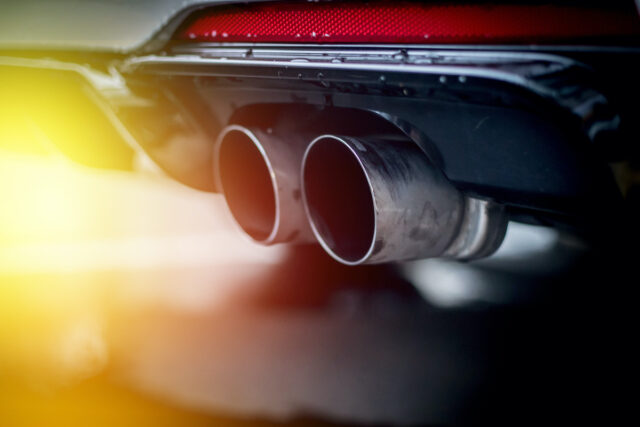
High-performance cars are frequently synonymous with the unmistakable deep roar they produce. This throaty bellow, unlike the subdued purring of a standard vehicle, is a deliberate manifestation of their power and performance capabilities.
Primarily, the deep roar is a result of larger engines that have more cylinders and greater displacements. Each combustion event in these engines releases more energy and, subsequently, creates more potent sound waves.
Additionally, many automotive enthusiasts and manufacturers fit these vehicles with aftermarket exhaust systems, explicitly designed to amplify and fine-tune this deep, roaring sound. These exhausts often have wider pipes and unique muffler designs that can manipulate the sound to be more resonant and bass-heavy.
For aficionados, the roar is not just noise; it’s music that speaks of the car’s performance prowess and evokes a sense of thrill and excitement. So, when you hear the deep roar of a high-performance car, know that it’s not just an arbitrary sound.
It’s an acoustic signature, meticulously crafted and fine-tuned, symbolizing the vehicle’s strength, speed, and spirit.
Brief Popping on Deceleration
When decelerating in certain vehicles, especially performance ones, a series of soft pops or “afterfires” can sometimes be heard emanating from the exhaust. This distinct sound occurs when remnants of unburnt fuel, left in the combustion chamber, are pushed out into the hot exhaust system.
Once this fuel comes in contact with the high temperatures of the exhaust, it ignites, resulting in a popping sound. For many car enthusiasts, this auditory effect is a sought-after trait, adding to the character and drama of the driving experience.
However, it’s essential to differentiate between the occasional, harmless pops and a constant barrage of them. If the popping becomes more frequent or excessively loud, it could indicate issues such as incorrect fuel mixture, malfunctioning fuel injectors, or problems with the vehicle’s timing.
In such cases, it’s advisable to consult with a mechanic or technician. Recognizing the difference between the characteristic pops and potential red flags ensures that the vehicle remains in optimal running condition and any underlying issues are promptly addressed.
Problematic Exhaust Noises

Rattling
A rattling sound from the exhaust often indicates a loose component. It could be something as simple as a loose exhaust hanger or something more concerning like a failing catalytic converter. If you hear this noise, it’s best to get it checked out.
Hissing or Whistling
A hissing or whistling sound can be indicative of an exhaust leak. Such leaks can occur due to rust, damage, or failed seals. Not only can they affect performance, but they can also introduce harmful exhaust gases into the cabin.
Loud Roaring
If your car suddenly sounds like a race car, you might have a hole in your muffler or exhaust pipe. This can drastically increase the noise level and should be addressed promptly.
Persistent Popping or Backfiring
While the occasional pop on deceleration can be normal, persistent popping or loud backfires are not. This can indicate problems with the fuel mixture, ignition timing, or damaged components in the exhaust system.
Metallic Tapping or Ticking
This sound might originate near the engine and can indicate an exhaust manifold leak. Such leaks can reduce engine efficiency and increase emissions.
Why Addressing Exhaust Noises is Crucial
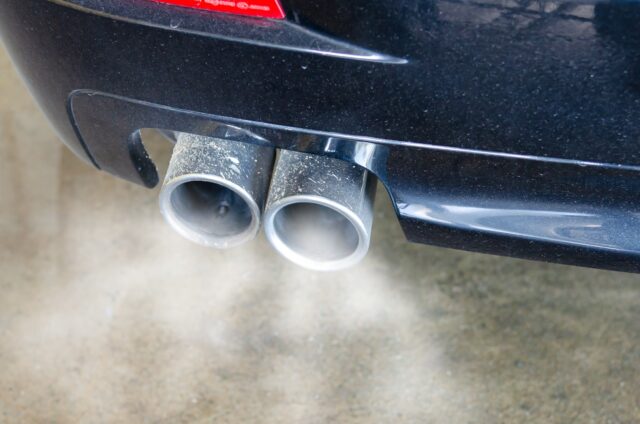
Ignoring problematic car exhaust noises isn’t just about avoiding potential embarrassment on the road. Here’s why you should take them seriously:
- Safety Concerns: An exhaust leak can introduce carbon monoxide, a colorless and odorless gas, into the car’s cabin. Prolonged exposure can lead to poisoning.
- Performance Issues: A compromised exhaust system can reduce engine efficiency, leading to decreased power and fuel economy.
- Environmental Impact: A malfunctioning exhaust system can increase emissions, contributing to air pollution and possibly causing your vehicle to fail emission tests.
- Financial Implications: Small issues, when ignored, can lead to more significant problems. Addressing noises early can save you from expensive repairs down the line.
Conclusion
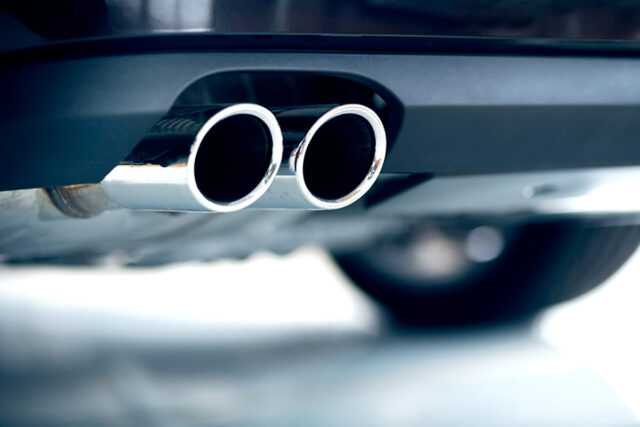
Your car’s exhaust noise can tell you a lot about its health. While some sounds are perfectly normal and might even be enjoyable, others can be indicative of underlying issues.
By understanding the difference between these noises and acting promptly when something sounds amiss, you can ensure the longevity of your vehicle, safeguard your health, and protect your wallet.
Always remember, when in doubt, it’s best to consult with a professional mechanic or technician. They can provide insights specific to your vehicle’s make and model, ensuring that your car remains in optimal condition.






